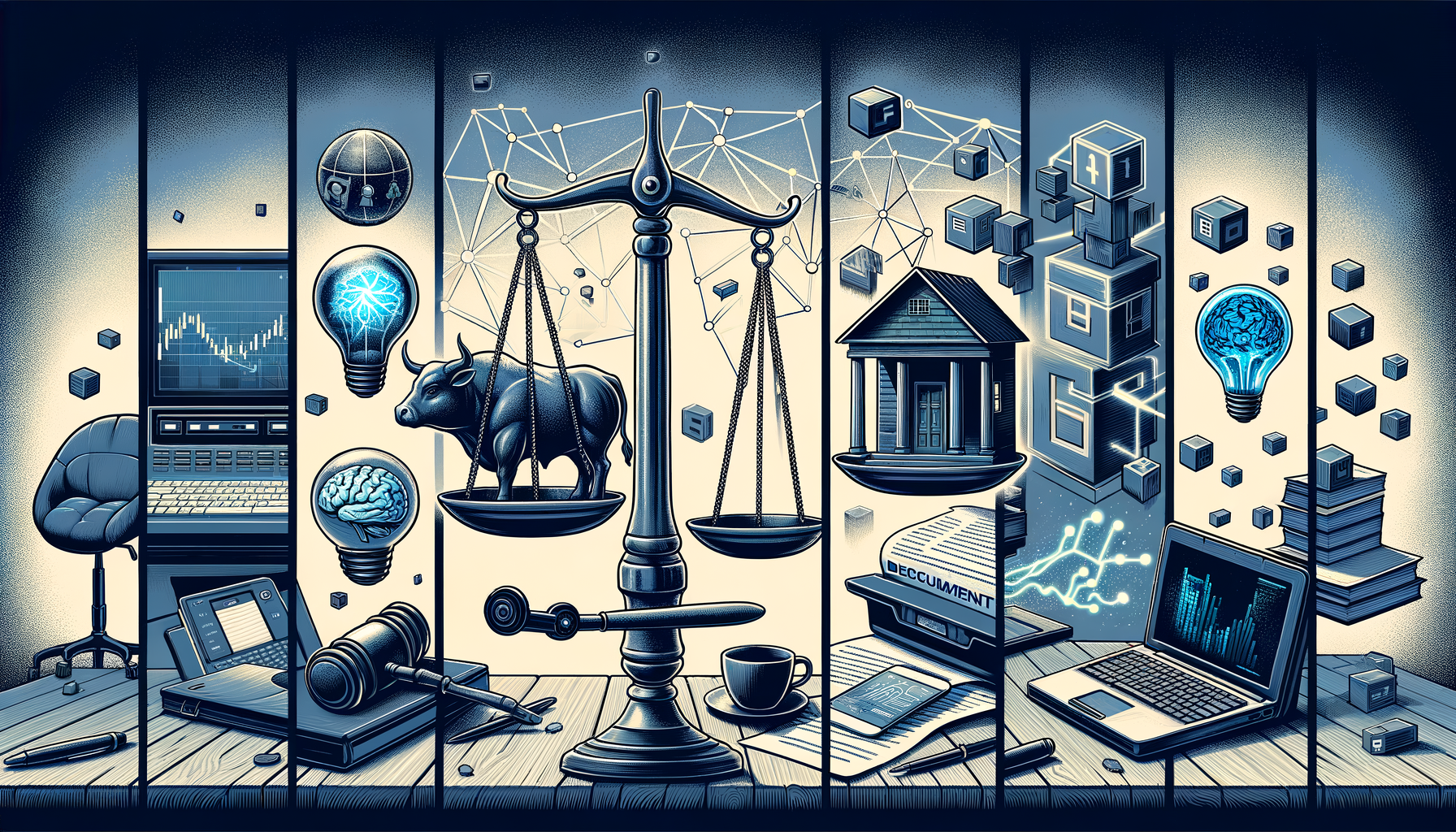“Exploring the Future of Mortgages: Industry Insights and Predictions for 2024”
The world of finance and lending boasts a dynamic and ever-evolving landscape, and gaining a comprehensive understanding of its numerous facets can offer a significant competitive edge. Specifically, the mortgage sphere is deeply impacted by various internal and external forces, including economic trends, technological advancements, and regulatory guidelines. Broadening our knowledge and perspectives is crucial to adapt to this environment and thrive in it.
Stock Markets and Their Influence on Mortgages
The symbiotic relationship between stock markets and mortgage rates is intriguing. Notably, the rise and fall of stock markets may trigger changes in the economy that ultimately influence mortgages. For instance, when stock prices increase, consumers and businesses tend to expand their spending due to perceived economic growth, positively impacting real estate and mortgages. However, a plummeting stock value can cause an economic slowdown and a weakened real estate market, potentially affecting mortgage rates. So, borrowers must stay informed about stock market trends to make the most of their mortgage decisions.
Traditionally, bonds have presented a safer investment option than stocks for many individuals and institutions. That’s why when there is economic uncertainty, a ‘flight to safety’ phenomenon typically occurs where investors sell off riskier stocks in favor of less risky bonds. This uptick in bond purchases can lower mortgage rates, demonstrating how seemingly unrelated financial events can impact the mortgage sphere.
Technology-Driven Shifts in Mortgage Lending
Technology has been instrumental in revolutionizing the mortgage landscape via a swift digitization process. Lenders are now tapping into modern solutions to enhance customer service, streamline procedures, and refine data management protocols. For instance, technologically advanced tools like document management systems, predictive analysis, AI, and machine learning pave the way for quicker loan processing and reduced lending cycle times while minimizing errors and fraud.
A rising trend is the application of blockchain technology in the mortgage sector. Blockchain has been hailed as a game-changer for securely and transparently processing transactions, a feature particularly helpful in mortgage loaning. Additionally, some companies employ mobile apps featuring mortgage calculators that effectively provide potential borrowers with useful estimates on interest rates, loan amounts, and repayment schedules. Hence, technology continues to shape the present and future of mortgage lending in multiple ways.
Regulatory Shifts Impacting Mortgage-Backed Securities
Mortgage-Backed Securities (MBS) are an integral part of the financial arena, and they hold a significant impact on the mortgage industry. However, the value of MBSs can be affected by changing regulations, as experienced recently when the European Central Bank decided to eliminate particular restrictions on MBS purchases. Further, the Mortgage Industry Standards Maintenance Organization (MISMO) is currently working to develop common standards for blockchain usage in real estate finance to boost efficiency, transparency, and interoperability in the industry. Hence, evolving regulatory guidelines can directly or indirectly impact the dynamics of the mortgage ecosystem.
A Fresh Look at Remote Work and Mortgages
The ongoing COVID-19 pandemic has transformed the work environment, pushing a significant workforce population towards a remote working model. However, alongside its apparent benefits, remote work brings a fresh set of challenges for the mortgage world. Firstly, it places an increased emphasis on technological infrastructure, necessitating state-of-the-art tools and systems to ensure smooth loan processing and compliance management in a remote setting. Secondly, just as the lender-borrower relationship has largely moved online, human interaction and trust-building activities need to evolve to maintain strong partnerships digitally.
Moreover, the remote working trend has stirred a shift in the residential real estate market as well. With the workplace no longer tied to an office, many are reconsidering their living arrangements, causing rippling change through the real estate and mortgage market. For example, suburban areas may see a rise in demand as people working remotely seek larger living spaces.
The Future of Mortgages
Several predictions about the future of mortgages have been put forth based on contemporary trends and analyses. Experts suggest that robotics and artificial intelligence could become more mainstream, further automating the mortgage process. Both Ellie Mae and Quicken Loans predict a future of mobile-first mortgage applications, while others suggest the emergence of alternative credit assessment models that consider non-traditional data sources such as rental payments and utility bills.
In conclusion, stakeholders involved in the mortgage industry should keep a close watch on these key elements – stock market fluctuations, technological advancements, regulatory changes, the evolving work scenario, and insightful predictions. Being well-informed and adaptable in this dynamic landscape ensures they are equipped to make sound decisions, innovate effectively, and progress in the mortgage domain.

